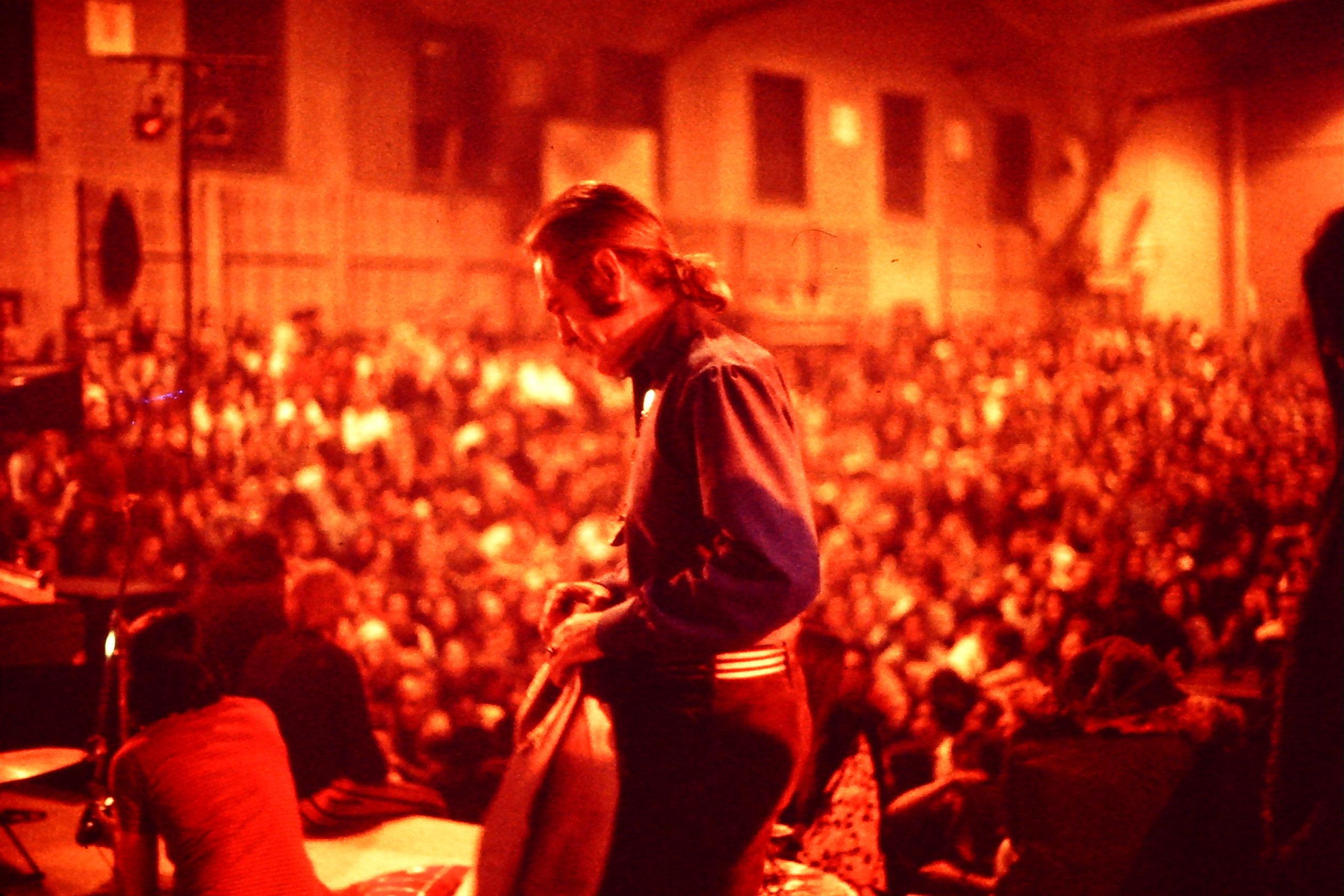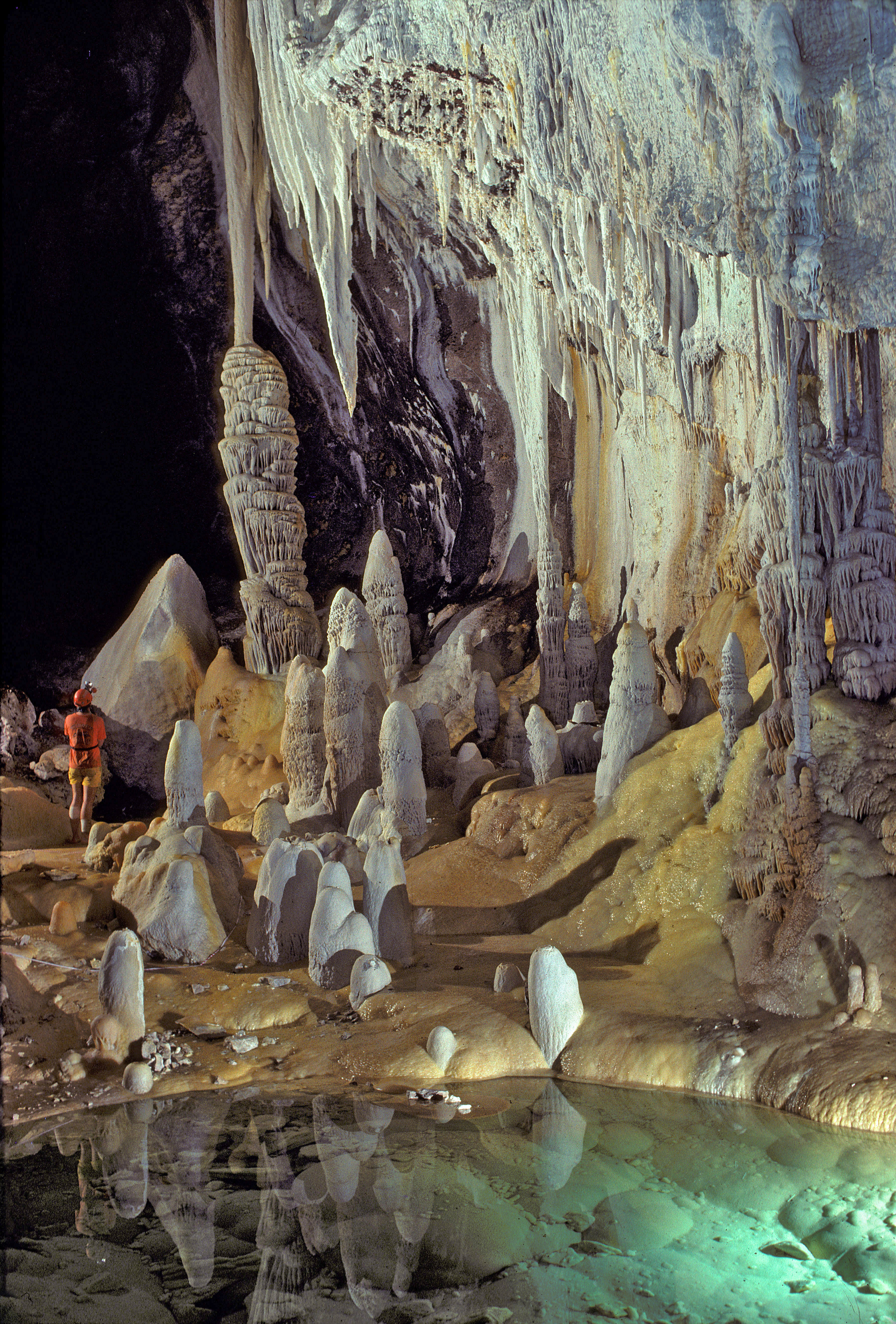|
Cyberdelic
Cyberdelic (from " cyber-" and "psychedelic") was the fusion of cyberculture and the psychedelic subculture that formed a new counterculture in the 1980s and 1990s. Cyberdelic art was created by calculating fractal objects and representing the results as still images, animations, underground, algorithmic music, or other media. Cyberdelic rave dance parties featured psychedelic trance music alongside laser light shows, projected images, and artificial fog, while attendees often used club drugs. Advocates Timothy Leary, an advocate of psychedelic drug use who became a cult figure of the hippies in the 1960s, reemerged in the 1980s as a spokesperson of the cyberdelic counterculture, whose adherents called themselves " cyberpunks", and became one of the most philosophical promoters of personal computers (PC), the Internet, and immersive virtual reality. Leary proclaimed that the "PC is the LSD of the 1990s" and admonished bohemians to " turn on, boot up, jack in". In co ... [...More Info...] [...Related Items...] OR: [Wikipedia] [Google] [Baidu] |
Cyberpunk
Cyberpunk is a subgenre of science fiction in a dystopian Futurism, futuristic setting that tends to focus on a "combination of low-life, lowlife and high tech", featuring futuristic technological and scientific achievements, such as artificial intelligence and cybernetics, juxtaposed with societal collapse, dystopia or decay. Much of cyberpunk is rooted in the New Wave science fiction movement of the 1960s and 1970s, when writers like Philip K. Dick, Michael Moorcock, Roger Zelazny, John Brunner (novelist), John Brunner, J. G. Ballard, Philip José Farmer and Harlan Ellison examined the impact of drug culture, technology, and the sexual revolution while avoiding the utopian tendencies of earlier science fiction. Comic book, Comics exploring cyberpunk themes began appearing as early as Judge Dredd, first published in 1977. Released in 1984, William Gibson's influential debut novel ''Neuromancer'' helped solidify cyberpunk as a genre, drawing influence from punk subculture and ... [...More Info...] [...Related Items...] OR: [Wikipedia] [Google] [Baidu] |
Cyber-
Internet-related prefixes such as '' e-'', '' i-'', '' cyber-'', ''info-'', '' techno-'' and ''net-'' are added to a wide range of existing words to describe new, Internet- or computer-related flavors of existing concepts, often electronic products and services that already have a non-electronic counterpart. The adjective '' virtual'' is often used in a similar manner. Cyber-, e-, i, and virtual "Cyber-" ''Cyber-'' is derived from "cybernetic", from the Greek κυβερνητικός 'skilled in steering or governing'. Examples: ''cyberspace'', '' cyberlaw'', ''cyberbullying'', ''cybercrime'', ''cyberwarfare'', ''cyberterrorism'', ''cybersex'', and ''cyberdelic''. It is commonly used for policies and politics regarding computer systems and networks (as in the above cases), but also for information technology products and services. "E-" ''E-'', standing for ''electronic'', is used in the terms ''e-mail'', ''e-commerce'', ''e-business'', '' e-banking'', ''e-sports'', ''e-pape ... [...More Info...] [...Related Items...] OR: [Wikipedia] [Google] [Baidu] |
Timothy Leary
Timothy Francis Leary (October 22, 1920 – May 31, 1996) was an American psychologist and author known for his strong advocacy of psychedelic drugs. Evaluations of Leary are polarized, ranging from bold oracle to publicity hound. He was "a hero of American consciousness", according to Allen Ginsberg, and Tom Robbins called him a "brave neuronaut". As a clinical psychologist at Harvard University, Leary founded the Harvard Psilocybin Project after a revealing experience with magic mushrooms in Mexico. He led the Project from 1960 to 1962, testing the therapeutic effects of lysergic acid diethylamide (LSD) and psilocybin, which were legal in the U.S., in the Concord Prison Experiment and the Marsh Chapel Experiment. Other Harvard faculty questioned his research's scientific legitimacy and ethics because he took psychedelics along with his subjects and allegedly pressured students to join in. One of Leary's students, Robert Thurman, has denied that Leary pressured unwilling ... [...More Info...] [...Related Items...] OR: [Wikipedia] [Google] [Baidu] |
Transhumanism
Transhumanism is a philosophical and intellectual movement which advocates the enhancement of the human condition by developing and making widely available sophisticated technologies that can greatly enhance longevity and cognition. Transhumanist thinkers study the potential benefits and dangers of emerging technologies that could overcome fundamental human limitations as well as the ethics of using such technologies. Some transhumanists believe that human beings may eventually be able to transform themselves into beings with abilities so greatly expanded from the current condition as to merit the label of posthuman beings. Another topic of transhumanist research is how to protect humanity against existential risks, such as nuclear war or asteroid collision. Julian Huxley was a biologist who popularised the term transhumanism in an influential 1957 essay. The contemporary meaning of the term "transhumanism" was foreshadowed by one of the first professors of futurology, a man ... [...More Info...] [...Related Items...] OR: [Wikipedia] [Google] [Baidu] |
Turn On, Tune In, Drop Out
"Turn on, tune in, drop out" is a counterculture-era phrase popularized by Timothy Leary in 1966. In 1967, Leary spoke at the Human Be-In, a gathering of 30,000 hippies in Golden Gate Park in San Francisco and phrased the famous words, "Turn on, tune in, drop out". It was also the title of his spoken word album recorded in 1966. On this lengthy album, Leary can be heard speaking in a monotone soft voice on his views about the world and humanity, describing nature, Indian symbols, "the meaning of inner life", the LSD experience, peace, and many other issues. History of the phrase In a 1988 interview with Neil Strauss, Leary said the slogan was "given to him" by Marshall McLuhan during a lunch in New York City. Leary added McLuhan "was very much-interested in ideas and marketing, and he started singing something like, 'Psychedelics hit the spot / Five hundred micrograms, that's a lot,' to the tune of a Pepsi commercial of the time. Then he started going, 'Tune in, turn on, and ... [...More Info...] [...Related Items...] OR: [Wikipedia] [Google] [Baidu] |
Antitechnology
Neo-Luddism or new Luddism is a philosophy opposing many forms of modern technology. The term Luddite is generally used as a pejorative applied to people showing technophobic leanings. The name is based on the historical legacy of the English Luddites, who were active between 1811 and 1816. Neo-Luddism is a leaderless movement of non-affiliated groups who resist modern technologies and dictate a return of some or all technologies to a more primitive level. Neo-Luddites are characterized by one or more of the following practices: passively abandoning the use of technology, harming those who produce technology harmful to the environment, advocating simple living, or sabotaging technology. The modern neo-Luddite movement has connections with the anti-globalization movement, anarcho-primitivism, radical environmentalism, and deep ecology. Neo-Luddism is based on the concern of the technological impact on individuals, their communities, and/or the environment, Neo-Luddism stipulates ... [...More Info...] [...Related Items...] OR: [Wikipedia] [Google] [Baidu] |
Immersive Virtual Reality
Immersion into virtual reality (VR) is a perception of being physically present in a non-physical world. The perception is created by surrounding the user of the VR system in images, sound or other stimuli that provide an engrossing total environment. Etymology The name is a metaphoric use of the experience of submersion applied to representation, fiction or simulation. Immersion can also be defined as the state of consciousness where a "visitor" (Maurice Benayoun) or "immersant" ( Char Davies)'s awareness of physical self is transformed by being surrounded in an artificial environment; used for describing partial or complete suspension of disbelief, enabling action or reaction to stimulations encountered in a virtual or artistic environment. The greater the suspension of disbelief, the greater the degree of presence achieved. Types According to Ernest W. Adams, immersion can be separated into three main categories: * Tactical immersion: Tactical immersion is experienced whe ... [...More Info...] [...Related Items...] OR: [Wikipedia] [Google] [Baidu] |
Bohemianism
Bohemianism is the practice of an unconventional lifestyle, often in the company of like-minded people and with few permanent ties. It involves musical, artistic, literary, or spiritual pursuits. In this context, bohemians may be wanderers, adventurers, or vagabonds. Bohemian is a 19th-century historical and literary topos that places the milieu of young metropolitan artists and intellectuals—particularly those of the Latin Quarter in Paris—in a context of poverty, hunger, appreciation of friendship, idealization of art and contempt for money. Based on this topos, the most diverse real-world subcultures are often referred to as "bohemian" in a figurative sense, especially (but by no means exclusively) if they show traits of a precariat. This use of the word in the English language was imported from French ''La bohème'' in the mid-19th century and was used to describe the non-traditional lifestyles of artists, writers, journalists, musicians, and actors in major Europea ... [...More Info...] [...Related Items...] OR: [Wikipedia] [Google] [Baidu] |
Antiscience
Antiscience is a set of attitudes that involve a rejection of science and the scientific method. People holding antiscientific views do not accept science as an objective method that can generate universal knowledge. Antiscience commonly manifests through rejection of scientific ideas such as climate change and evolution. It also includes pseudoscience, methods that claim to be scientific but reject the scientific method. Antiscience leads to belief in conspiracy theories and alternative medicine. Lack of faith in science has been linked to promote political extremism and distrust in medical treatments. History In the early days of the scientific revolution, scientists such as Robert Boyle (1627–1691) found themselves in conflict with those such as Thomas Hobbes (1588–1679), who were skeptical of whether science was a satisfactory way to obtain genuine knowledge about the world. Hobbes' stance is regarded by Ian Shapiro as an antiscience position: In his ''Six Lessons to ... [...More Info...] [...Related Items...] OR: [Wikipedia] [Google] [Baidu] |
CAVE Crayoland
A cave or cavern is a natural void in the ground, specifically a space large enough for a human to enter. Caves often form by the weathering of rock and often extend deep underground. The word ''cave'' can refer to smaller openings such as sea caves, rock shelters, and grottos, that extend a relatively short distance into the rock and they are called ''exogene'' caves. Caves which extend further underground than the opening is wide are called ''endogene'' caves. Speleology is the science of exploration and study of all aspects of caves and the cave environment. Visiting or exploring caves for recreation may be called ''caving'', ''potholing'', or ''spelunking''. Formation types The formation and development of caves is known as '' speleogenesis''; it can occur over the course of millions of years. Caves can range widely in size, and are formed by various geological processes. These may involve a combination of chemical processes, erosion by water, tectonic forces, microorganis ... [...More Info...] [...Related Items...] OR: [Wikipedia] [Google] [Baidu] |
Technophilia
Technophilia (from Greek τέχνη - ''technē'', "art, skill, craft" and φίλος - ''philos'', "beloved, dear, friend") refers generally to a strong enthusiasm for technology, especially new technologies such as personal computers, the Internet, mobile phones, and home cinema."Technophilia." The American Heritage® Dictionary of the English Language, Fourth Edition. 2003. Houghton Mifflin Company 23 Sep. 2012 http://www.thefreedictionary.com/technophilia The term is used in sociology to examine individuals' interactions with society and is contrasted with technophobia. On a psychodynamic level, technophilia generates the expression of its opposite, technophobia.Richards, Barry. "Technophobia and Technophilia." British Journal of Psychotherapy 10.2 (1993): 188–95. Print. Technophilia and technophobia are the two extremes of the relationship between technology and society. The technophile regards most or all technology positively, adopts new forms of technology enthusiastica ... [...More Info...] [...Related Items...] OR: [Wikipedia] [Google] [Baidu] |
Nootropic
Nootropics ( , or ) ( colloquial: smart drugs and cognitive enhancers, similar to adaptogens) are a wide range of natural or synthetic supplements or drugs and other substances that are claimed to improve cognitive function or to promote relaxation, particularly boosting mood, executive functions, attention, memory, creativity, or motivation in healthy individuals. The use of cognition-enhancing supplements by healthy individuals in the absence of a medical indication spans numerous controversial issues, including the ethics and fairness of their use, concerns over adverse effects, and the diversion of prescription drugs for non-medical uses. Nonetheless, the international sales of cognitive- or mood-enhancing supplements have continued to grow over time and in 2012 reached 0.69 billion. With sales supported by global health trends, the market is expected to reach US$33.85 billion by the year 2030, at a CAGR of 14.8%. While most nootropics are not regulated, there a ... [...More Info...] [...Related Items...] OR: [Wikipedia] [Google] [Baidu] |






.jpg)
